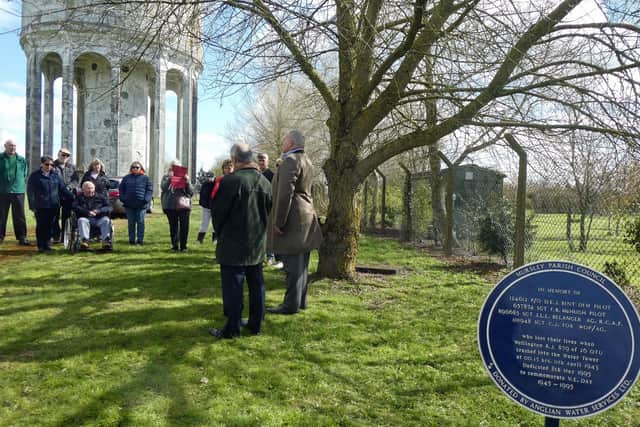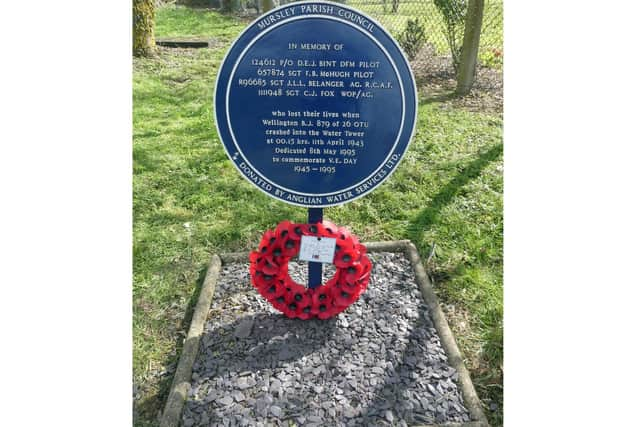Community remembers brave airmen killed in WW2 plane crash in Mursley
and live on Freeview channel 276
Mursley villagers gathered at Mursley’s water tower to pay their respects on the 80th anniversary of a wartime air crash that killed four brave airmen.
The group assembled on Tuesday to commemorate the death of the crew of a Wellington bomber that crashed into the tower on April 11 1943.
Advertisement
Advertisement
The crew of four, who were on a training flight from RAF Little Horwood, about two miles away, all lost their lives


Village historian Melinda Cole outlined the events of that night. RAF Little Horwood was a satellite airfield to RAF Wing, used for the training of units for combat.
The Wellington bomber was used for night bombings, which explains why BJ879, a Vickers Wellington Mark III, was practising dual night circuits and landings from the base.
Mursley water tower stood on the centre line of the runway, about two miles out. Being 600ft above sea level, the RAF did not consider it constituted an obstruction.
Advertisement
Advertisement
This Wellington had completed two successful circuits. Tragically, on the third approach, at 15 minutes past midnight, the aircraft struck the water tower and burst into flames.


The accident report said the aircraft was so low in approach, it would not have reached the airfield if the tower had not been there.
Melinda then gave brief details of each of the four crew - Pilot Officer Dennis Bint DFM from Oxford, Pilot Instructor RAF, aged 20; Sgt Francis McHugh from Birmingham, pilot/navigator RAF, aged 21; Sgt Lionel Belanger from Quebec, air gunner RCAF, aged 23 and Sgt Cyril Fox from Lincoln, wireless operator and air gunner RAF, aged 22.
Lee Wickenden recited the poem High Flight by the war poet and Second World War Spitfire pilot John Gillespie Magee, who himself was killed on exercises out of RAF Cranwell in Sleaford in 1941.
Advertisement
Advertisement
Lyndon Robinson recited the Ode of Remembrance, ‘They shall grow not old...’ followed by a minute’s silence, after which Lee laid a wreath and churchwarden Andrew Cowell led prayers.
The grounds of the water tower were kindly opened by Anglian Water for the occasion.